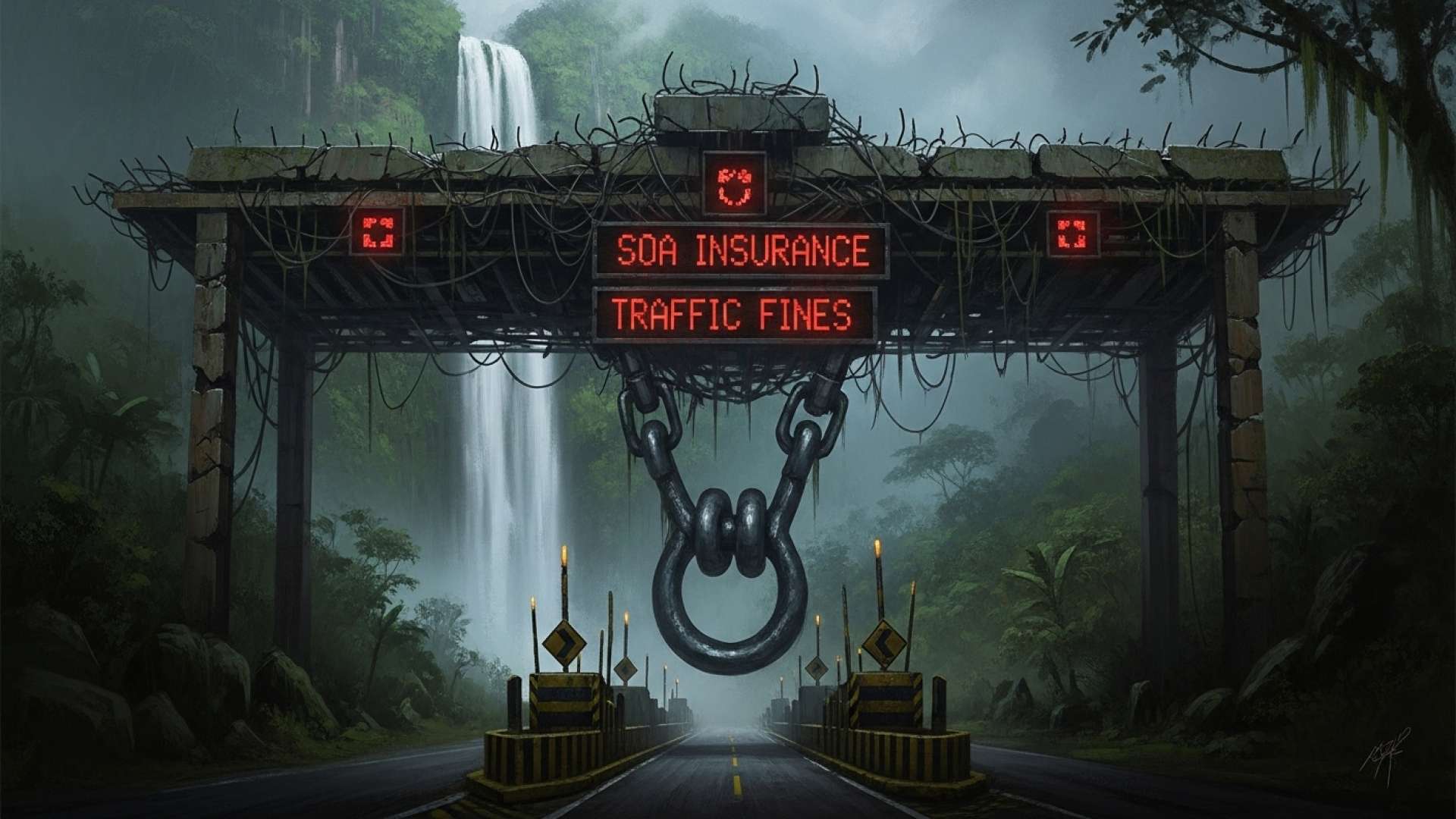San José, Costa Rica — San José, Costa Rica – With the collection period for the 2026 Marchamo, or annual vehicle circulation permit, set to begin on November 3rd, a staggering ₡41.5 billion from the 2025 cycle remains uncollected. This significant delinquency, reported by the National Insurance Institute (INS), places over 142,000 vehicle owners in a precarious position, facing mounting fines and the potential for their vehicles to be impounded.
The latest figures released on Thursday paint a concerning picture of payment compliance just weeks before the new cycle begins. A total of 142,093 vehicle owners have yet to settle their 2025 obligations, creating a substantial revenue shortfall and leaving thousands of drivers uninsured. The data reveals a specific concentration of delinquency within certain vehicle categories, highlighting potential economic or logistical challenges for these groups.
To gain a clearer understanding of the legal and fiscal framework surrounding the upcoming Marchamo 2026, we sought the expert analysis of Lic. Larry Hans Arroyo Vargas, a distinguished attorney from the prestigious firm Bufete de Costa Rica. His insights shed light on the core principles that should guide any potential reforms.
Any modification to the calculation of the property tax on vehicles for the Marchamo 2026 must adhere strictly to the principles of legal certainty and tax equity. It is crucial that the methodology be transparent and predictable, avoiding arbitrary fluctuations that erode public trust. A clear, well-communicated reform is essential not only for proper compliance but also to prevent a wave of administrative and judicial challenges from affected vehicle owners.
Lic. Larry Hans Arroyo Vargas, Attorney at Law, Bufete de Costa Rica
Indeed, the principles of transparency and predictability are not mere legal formalities, but the very foundation upon which public trust is built. A well-communicated reform is essential to ensure its legitimacy and prevent widespread conflict. We thank Lic. Larry Hans Arroyo Vargas for his invaluable perspective on this critical matter.
Analysis from the INS shows that the highest levels of non-payment are among motorcycle and moped owners, who account for 63,248 outstanding permits. This group is closely followed by owners of private cars, with 58,599 permits still pending payment. This trend suggests that a large portion of daily commuters and small-business transport vehicles are currently operating outside legal requirements, posing a risk to both the owners and public safety.
A critical component of the Marchamo is the Compulsory Automobile Insurance (SOA), which is included in the annual payment. This essential insurance provides coverage of up to ₡6 million per person in the event of a traffic accident. These funds are vital for financing the immediate medical attention, long-term rehabilitation, disability payments, and indemnities for families of victims. The widespread delinquency directly compromises the financial stability of this crucial public safety net.
Officials from the INS are urging non-compliant drivers to rectify their status immediately to avoid the severe consequences of continued delinquency. The penalties are not trivial; they include accumulating interest on the unpaid amount, substantial fines from traffic authorities, and additional sanctions. In the most severe cases, traffic police are authorized to seize the vehicle and remove it from circulation until the debt is fully paid.
Sidney Viales, the Head of the Compulsory Insurance Directorate at INS, issued a formal appeal to the thousands of vehicle owners currently in arrears. He stressed the importance of timely payment not only to avoid personal financial penalties but also to ensure the integrity of the national insurance system.
We want to urge vehicle owners who have not paid this year’s Marchamo to make their payment through the website or at INS branches and avoid facing surcharges
Sidney Viales, Head of the Compulsory Insurance Directorate
As the November 3rd start date for the 2026 collection approaches, the window for rectifying 2025 delinquencies without further complication is rapidly closing. Vehicle owners who fail to pay their outstanding balance will be blocked from processing their 2026 permit, creating a compounding problem that becomes increasingly expensive and difficult to resolve. This administrative roadblock ensures that non-compliance is not easily overlooked, forcing a resolution before a new permit can be issued.
The ₡41.5 billion shortfall represents more than just a collection problem; it reflects a significant challenge to the country’s road safety framework and fiscal health. As authorities prepare for the new payment season, the focus remains on encouraging the remaining 142,093 drivers to fulfill their legal and financial obligations, thereby restoring their insurance coverage and contributing to a safer transportation system for all citizens.
For further information, visit grupoins.com
About Instituto Nacional de Seguros (INS):
The Instituto Nacional de Seguros (INS) is Costa Rica’s state-owned insurance company, founded in 1924. As a cornerstone of the nation’s financial and social security system, INS holds a significant market share and is responsible for managing a wide portfolio of insurance products, including life, health, property, and automotive coverage. It is the sole entity charged with administering the Compulsory Automobile Insurance (SOA) as a key component of the annual “Marchamo” vehicle circulation permit, ensuring that victims of traffic accidents receive necessary medical and financial support.
For further information, visit bufetedecostarica.com
About Bufete de Costa Rica:
As a pillar of the Costa Rican legal community, Bufete de Costa Rica is defined by its foundational principles of integrity and an unwavering pursuit of exceptional service. The firm consistently champions pioneering legal approaches while advising a broad spectrum of clients. Central to its ethos is a deep-seated dedication to democratizing legal understanding, aiming to strengthen society by equipping citizens with clarity and insight into the law.









